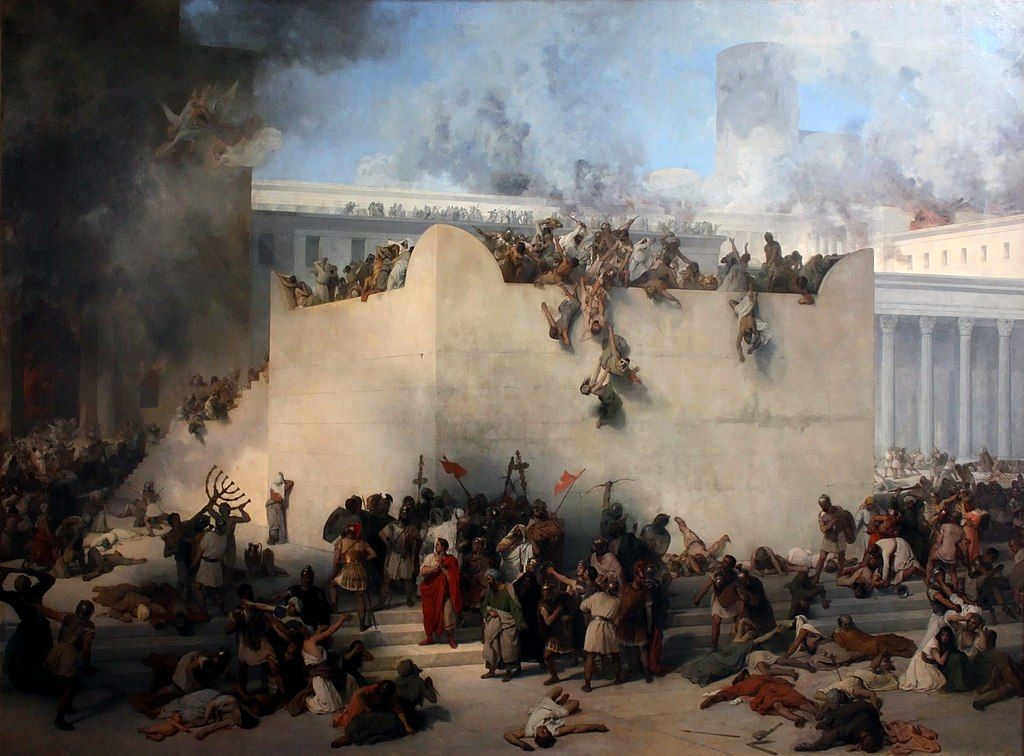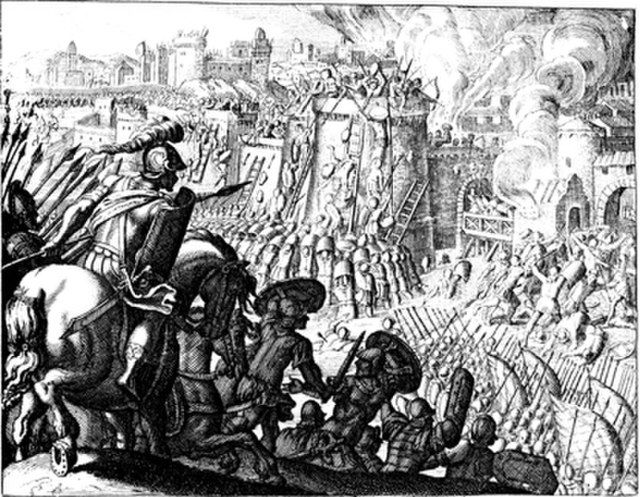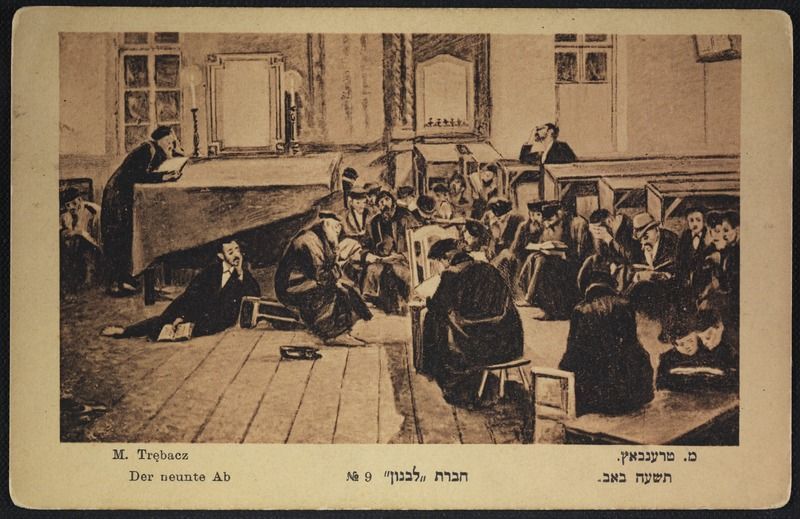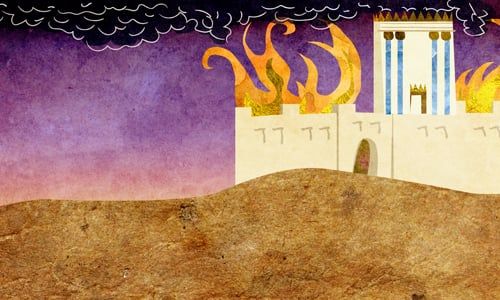Shabbat Gathering: Tisha b’Av: The saddest day of the year, by far.

Dear Chevra, as is our custom, we will gather tonight at 5.45p ct to welcome Shabbat. These are the coordinates:
Zoom
Meeting ID: 963 5113 1550
Password: 1989
Phone: +1 312 626 6799
Rabbi Laurie will be away this week but will return next week. Yay!
Also, here's a link to our recipe page. If you have more recipes you'd like to contribute, please send them to me and I'll be happy to include them on the page.
(To unsubscribe from the newsletter, click the link at the very bottom of this email.)
Here we go.
No other Jewish holy day packs as much sadness and sorrow into one observance than Tisha b’Av, the ninth of Av which we observe this year on Sunday, August 7.
The Talmud uncovers the roots of the observance of Tisha b’Av. Talmud says that on the ninth of Av, these five disasters befell the Jewish people:
- The return of the Twelve Spies from their mission to reconnoiter the land of Canaan. Except for two, the spies returned with a bad report. It was this incident that precluded Jews from entering Israel for a generation.
- The First Temple was destroyed by the Babylonians in 586 bce and the Jews were exiled.
- The Second Temple was destroyed in 70 ce by the Romans.
- The Romans put down the Bar Kokhba's revolt in 135 ce and killed more than 500,000 Jews.
- The Romans plowed the site of the Temple that same year.
As if that wasn’t enough.
Since then, the ninth of Av has been a lightening rod for calamities:
- The beginning of the First Crusade in 1096.
- The expulsion from England in 1290.
- The expulsion from France in 1306.
- The expulsion from Spain in 1492.
- Germany entering World War I in 1914.
- SS commander Himmler’s approval in 1941 for “The Final Solution.”
- The 1941 mass deportation of Jews from the Warsaw Ghetto.
- The 1994 bombing of the Jewish community center in Buenos Aires that killed 85 and injured 300.

The pertinent text for Tisha b’Av is Lamentations. Apt. Lamentations is one of the five scrolls, megillot, of Bible along with Ruth, Song of Songs, Esther, and Ecclesiastes. Lamentations is a suite of five poems about the destruction of the first Temple. Jeremiah is frequently cited as the author of Lamentations, but this is probably a myth.
For some, the observance of Tisha b’Av begins three weeks before the date. For others, it begins on the first of Av. During this period of time, some do not listen to music and begin some of the mourning rituals associated with the day.
How some observe.
Some observe Tisha b’Av with a 25-hour fast and, immediately before the fast begins, some will eat a hard boiled egg and a piece of bread dipped in ash. Grim. In addition to the fast, some sit on the ground or low stools as if observing shiva. Some don’t wash, won’t make love, or even say hello to each other. Some don’t wear fresh clothes for a week before the Tisha b’Av. Some don’t shave, won’t get married, won’t wear perfume, and don’t wear leather. Even when the fast is broken following Tisha b’Av, many will refrain from eating meat or drinking wine during the break fast.

Some believe that Tisha b’Av is the prelude for the High Holy Days. It’s a day of morning before the joy of Rosh Hashanah and then the grim again of Yom Kippur. It helps create an “down, up, down” rhythm for the High Holy Days.
According to Rabbi Alan Lew, author of This is Real and You Are Completely Unprepared,
There are two ways of looking at the way our tradition has collapsed history on this day, two ways of thinking about this conflation of calamity. We can regard the ninth of Av and the weeks surrounding it as a cursed time [...] , or we can regard the ninth of Av as a time when we are reminded that catastrophes will keep recurring in our lives until we get things right, until we learn what we need to learn from them.
Rabbi Lew believes Tisha b’Av, and the catastrophes it contains, has a lesson for us.
Our power in this world is considerable, but also very circumscribed. It is only here and now, in this moment, in this place—in the present—that we can act. We cannot act in the past, we cannot act in the future, and most certainly we cannot act through someone else’s experience. So from a spiritual point of view, we need to ask, What can I do here and now, in the present-tense reality of my own experience?

Pressure? What pressure?
I feel a bit pressured by this point of view. I’m not trying to shirk my responsibility for acting in the present and doing the right thing, but in the face of the accumulated trauma of the past and the seemingly insurmountable peril of the present, I feel helpless and hopeless. Climate change, hate, war, violence, fascism, white Christian nationalism, apartheid, all these and so much more make me feel like I’m being crushed. I can barely take care of my own mother much less heal the world. For that matter, I can barely take care of myself.
But I do have a small thread of hope. In a few small ways, very small ways, I do my part for a slightly better world. Tikkun Olam. I seem to be holding a small candle on a vast, dark plain on a windy night. And if I look around, very carefully, I can see a few others with their candles too, many far away, and others, not so much, a short walk. I don't know what we're all going to do about all this, but I am glad I'm not alone.
And if you want to observe...
CSS does not have a congregational observance of Tisha b'Av, but Beth Israel and Beth El do.
Beth Israel
Saturday, August 6 at 9:00 pm • In person and Livestream
Sunday, August 7 at 8:15 am • In person and Zoom
Observe Tisha b'Av with the traditional reading of Eicha (Lamentations) and Kinnot, beginning the spiritual and emotional journey toward Rosh Hashanah and the Days of Awe.
Beth El
Tisha b'Av: At a Time of Brokenness, What Do Righteous People Do?
Sunday, August 7 from 3:00 pm - 4:30 pm • In person and YouTube
On this holy day commemorating the destruction of the First and Second Jerusalem Temples, we will observe Tisha b’Av with a sensitivity to the past and intentions for the future, as we both recognize the destruction and brokenness of our times and pledge to bring repair to our world today and in the future.
You can refer to their websites for more information. I'll be observing with Hadar.
And may it be for all of us a blessing.
See you tonight!
Gut Shabbes!
All my love,
brian.